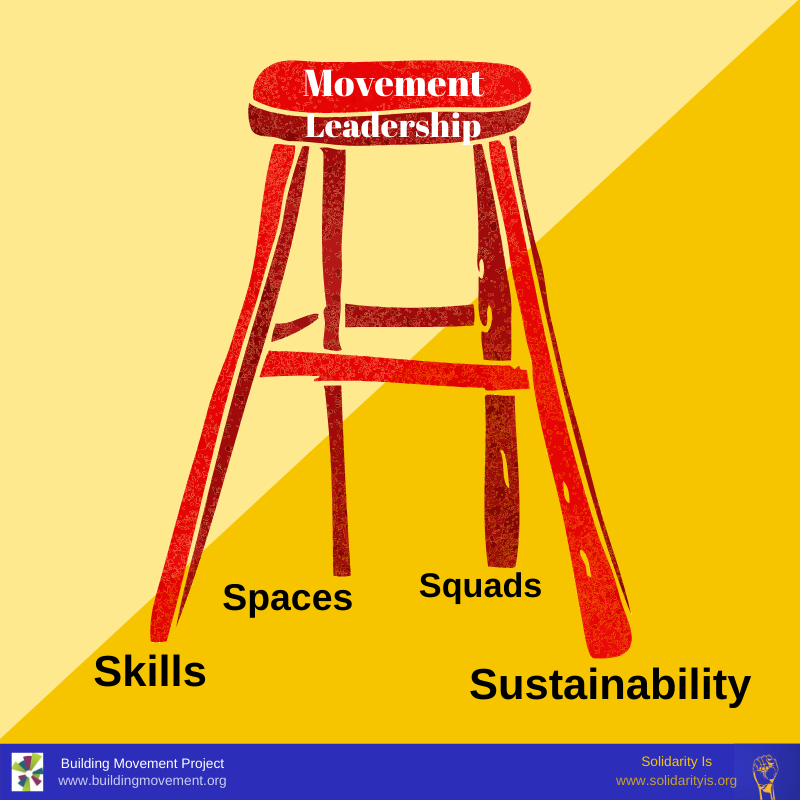
Movement Leadership Stool
The stool of movement leadership is a starting point to support the people driving the movements we need in today’s world. Sustainability is one leg that holds up effective movement leadership as a whole. Movement leaders thrive when they are part of collective spaces where they can build trust, deepen political analysis, ideate, and take risks. And because movement leaders function well beyond their organizations in a broader ecosystem, they need squads – people within and outside their organization playing diverse roles – to support them. Finally, movement leaders can be more effective when they can hone skills such as base building, conflict resolution, and narrative development.
Which leg does your organization and movement need to strengthen? If you are a funder, how do you already support movement leaders and what more could you do, particularly around centering sustainability? If you are working at a social change non-profit organization, how can you generate practices to create a culture of well-being? And, are there more legs that the stool needs?

SALTA Leadership Training
SALTA (Salud Ambiental Lideres Tomando Accion – Environmental Health, Leaders Taking Action) is a web-based, interactive leadership development curriculum that provides community leaders with skill-building training in community organizing, policy advocacy, building power, community health, environmental justice and effective communication.
SALTA is a key component to ensuring that EHC achieves our core mission. More than education, SALTA is integrated with EHC’s organizing and advocacy efforts to achieve environmental and social justice.
SALTA programs represent the organic educational efforts of the different campaigns, teams, leaders, and staff that make up EHC and were designed specifically for our leaders based on our local efforts. We began SALTA trainings in 1996, and now more than 2,000 individuals have been trained.
Developed and field tested by EHC staff and leaders during the past 15 years, SALTA uses a popular education approach that makes the training inclusive and accessible to all participants. Trainings are based on the knowledge, skills and real-world experiences of EHC staff, leaders and training participants.
Popular education, which has varying interpretations, is best defined by the practice where participants share their own understanding and feelings about a specific topic or issue and that understanding and feelings are considered valid. The idea of popular education (often described as “education for critical consciousness”) as a teaching methodology came from a Brazilian educator and writer named Paulo Freire, who was writing in the context of literacy education for poor and politically disempowered people in his country. It’s different from formal education (in schools, for example) and informal education (learning by living) in that it is a process which aims to empower people who feel marginalized socially and politically to take control of their own learning and to effect social change.
The SALTA sessions improve participants’ sense of belonging to a community as participants and stakeholders of their societies. They begin to see themselves as empowered members who can make change.
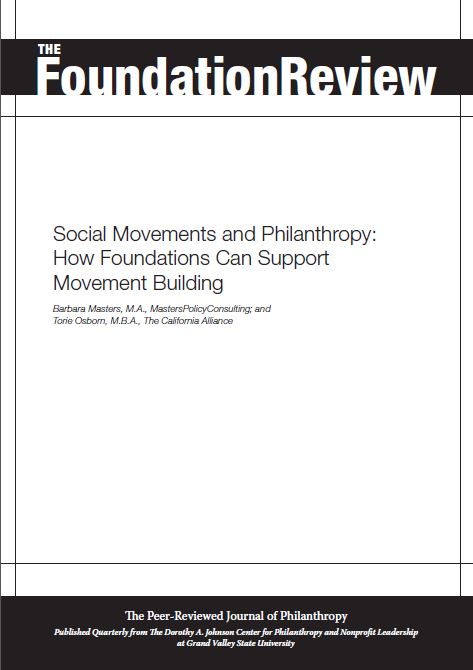
Social Movements and Philanthropy: How Foundations Can Support Movement Building
On page 17 of this report, social service organizations are identified as places that have not been organized to contribute to social change efforts. The author cites the Building Movement Projects Social Service and Social Change: A Process Guide (http://www.buildingmovement.org/blog/entry/22?news/entry/22) as a tool to increase engagement as well as noting other strategies for recruitment.
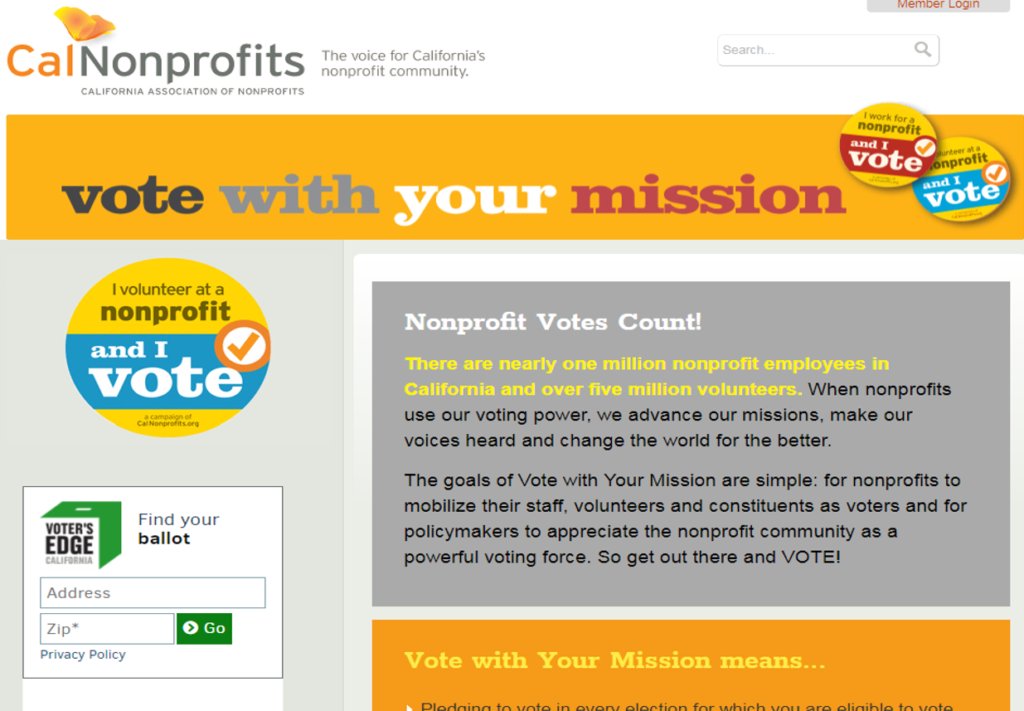
Vote with your Mission Campaign Kit
These materials, provided by California Nonprofits, help organizations promote civic engagement and leadership.
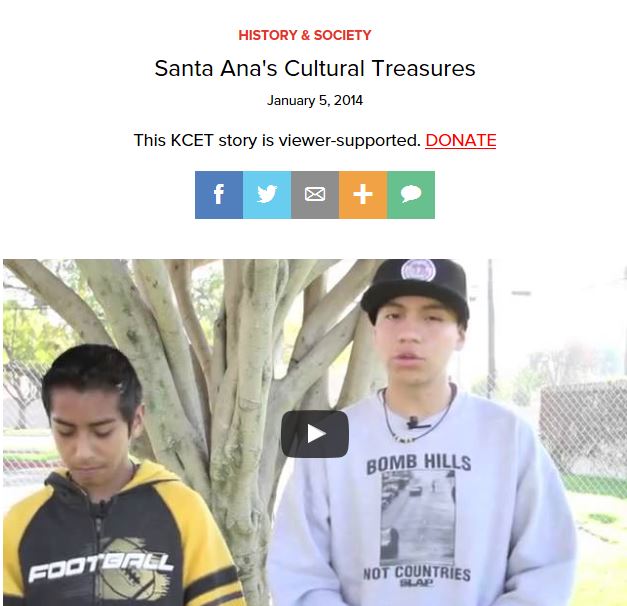
The Power of Stories
This webpage has a link to a video that describes the cultural treasures of one community in California. The video highlights youth working for change and developing leadership through civic engagement and advocacy.
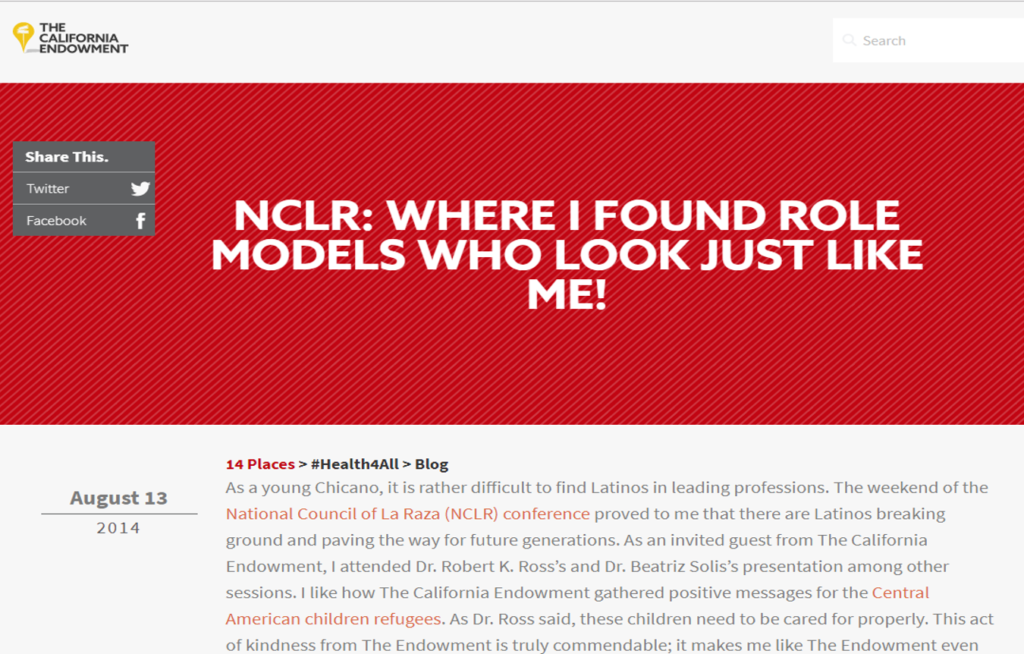
Where I Found Role Models Who Look Just Like Me
This motivating story by a youth leader can be effective to spark conversation about engaging often overlooked constituents for leadership roles.
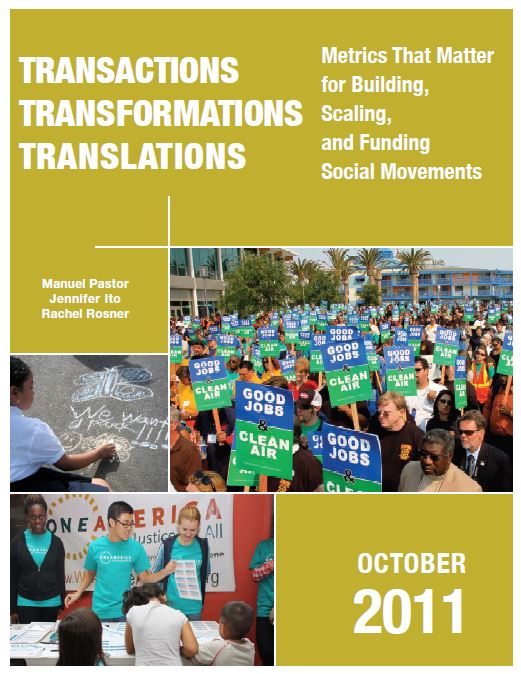
Transactions, Transformations, Translations
“Transactions, Transformations, Translations: Metrics That
Matter for Building, Scaling, and Funding Social Movements” is a way of looking at organizational growth and the alliance building that brings groups together. This evaluation approach can capture the importance of narrative and numbers, of politics and policies, of transformation as well as transaction.
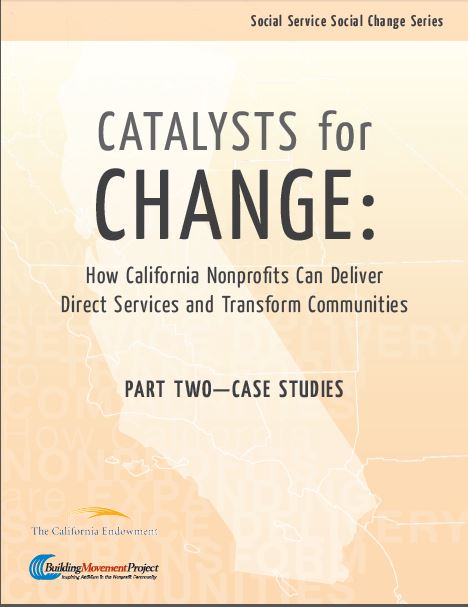
Catalysts for Change: How California Nonprofits Can Deliver Direct Services and Transform Communities (CASE STUDIES)
With the support of The California Endowment, the Building Movement Project surveyed over 450 California-based nonprofit direct service providers to explore whether they are integrating social change activities into their work. Part Two of Catalysts for Change offers five in-depth case studies of California-based health and social service providers that are engaging in non-service activities to address systemic issues – including poverty, inequality, and health disparities – as well as building the voice and power of their constituents. The case studies illustrate and highlight many of the concepts explored in Part One of Catalysts for Change and they give readers the opportunity to delve more deeply into the work of different organizations that are engaged in direct service delivery and other change-oriented activities.
To read Part One: Report of Catalysts for Change, click here.
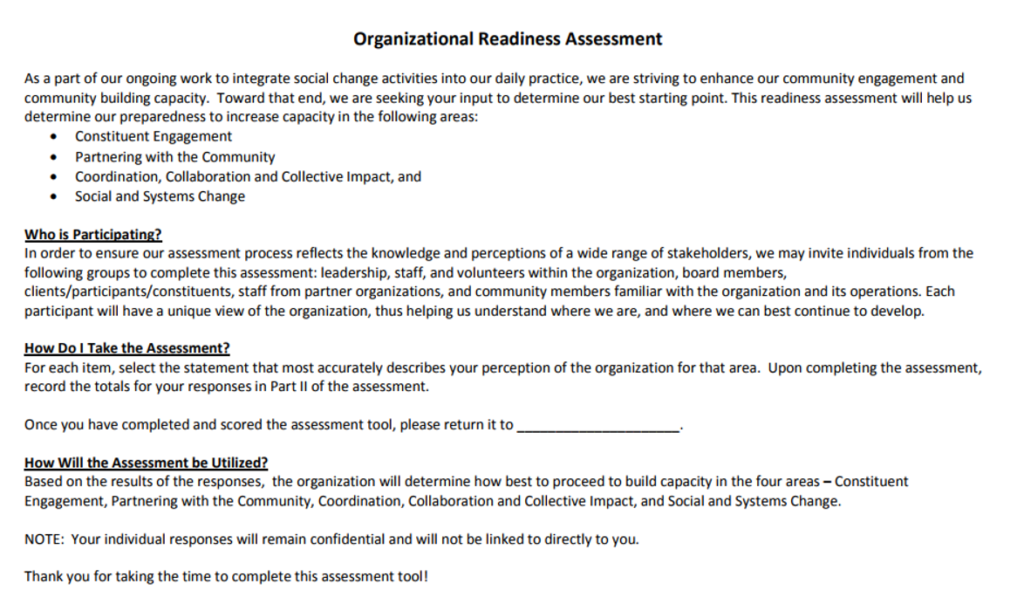
Organizational Readiness Assessment
The Organizational Readiness Assessment is designed as a tool to help organizations explore the status of their vision and mission, their relationship to staff, partners and constituents, and their leadership approach as part of an organizational culture conducive to social change efforts.
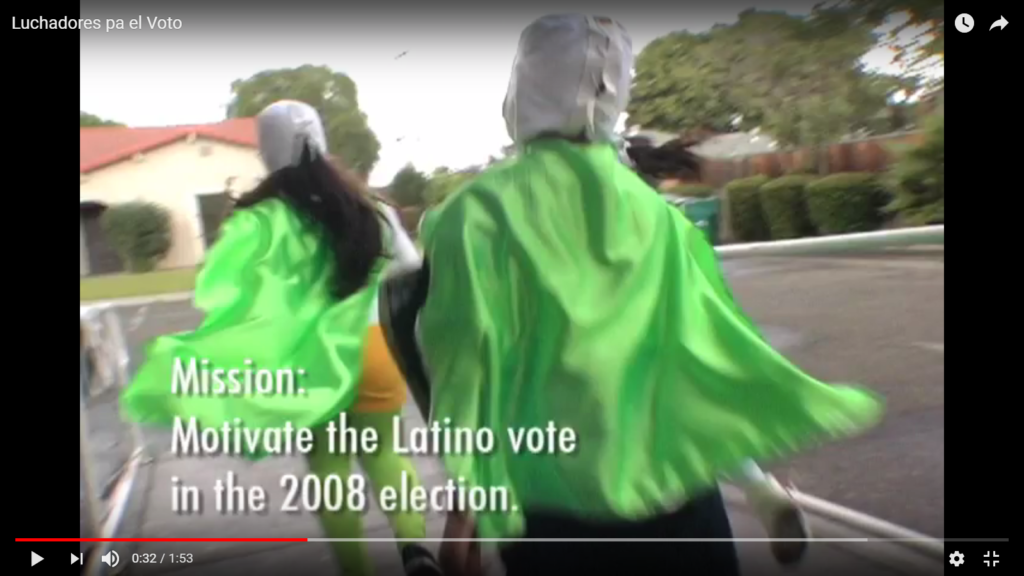
Luchadores para el Voto
This video shows how members of a small community used the strength of its culture to address issues of voter capacity and civic apathy.
